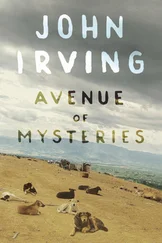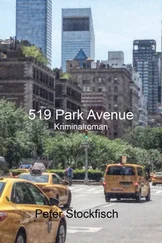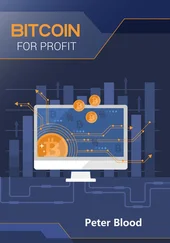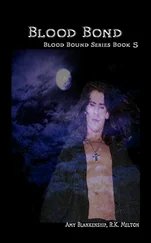“The classic CEO just doesn’t get it, Joy. A wimp like him thinks: I have to be innovative, I have to be sustainable, I have to go green, I have to do this, that, and the other. He opens up a can of managers and realizes a year later that those feckin’ morons thought up something totally different than what he meant. So he says: whoa, let’s wait it out a bit. Stupid .”
“What do you want,” I asked him that day on the squash court: “to go back to Belfast, or tack an extra zero onto your year-end profits? In two years we’ll either be making fifty million, Wells, or we’ll be broke. What we’re doing now, anyone can do. It’s got to be better. It’s got to be bigger. Different . And you know it.”
“That’s pure ballax,” he retorted. On the rare occasion that he lost his velvety patience, his English turned thick Irish. Rusty Wells: if there was anyone who wanted to obscure his background but couldn’t, it was Rusty. He was raised in Belfast in a moderate Catholic family that spent the whole of the 1980s scared to death of the IRA; not because the terror in any way touched the family itself, but because the terror appeared to be carried out in their name. He once mentioned the nervous loathing and misplaced guilt that had colored his youth. From then on I thought I had that incessant smile of his figured out. At rest, his face betrayed subtle wrinkles that encircled his lipless mouth, folded around the corners of his mouse-gray eyes — wrinkles that, strangely enough, vanished when he laughed, which he did effortlessly and at random, so often that the smile was in fact his face’s default mode.
“I can’t do it,” he said with the pinched voice of some B actor trying to emote. He let his spine slide down the wall until his little Irish tush hit the floor, the back of his head resting against the whitewashed cement under the red stripe.
“Rusty, am I hearing you right?”
“I. Can’t. Do. It.”
“What can’t you do?”
“Take such a big risk.”
I couldn’t believe my ears. “And what about your real estate larks?” For years he’d been playing the big shot with his gangster house in Bel Air, alongside a handful of other properties he’d picked up on spec, all of them in Beverly Hills or on Sunset. Thanks to a sweet bonus deal I was able to buy a fabulous house from him at the beginning of Sunset Boulevard — a Frank Lloyd Wright clone sticking halfway out of the cliff and supported by tall pillars — that Rusty wanted to “keep in the family.” “And your pet Rembrandt?” He like poking around art auctions. In the Dutch Masters section of the Getty there is a tiny painting, a bathroom tile, no more than that, but it was a Rembrandt, a gen-u-ine Rembrandt, and that genuine Rembrandt was the property of Rusty Wells. A risk-taker? Rusty burned dollars.
“That’s different,” he said. “It’s private.”
Around 2000 he got rich overnight by selling off a dating site just before the dot-com crash. He likes to tell the story of how, right after signing the papers, he walked out of his poky two-bedroom apartment in Redondo Beach, got into a taxi and told the driver to take him to Mulholland Drive, and step on it, man, let’s see some trees, but slow down at For Sale signs. When he saw the villa he wanted, he got out and offered the owners fifty percent above their asking price — you’ll have your money tonight — on the condition that they clear out on the spot. He never set foot in that dump in Redondo Beach again, hadn’t even taken the trouble to sell it, the sink was probably still full of dirty dishes. Probably all bullshit, just like what he was telling me now.
I squatted down in front of him and looked hard into his pale irises. “Where’s the daredevil who only needed five minutes to wheedle me away from McKinsey?” I whispered seductively. “What happened to Wells the go-getter?”
He blinked nervously. His blond eyelashes made his eyelids look too short.
“How do you think they got so big at eBay? At Amazon? By shitting in their pants?”
Instead of chewing me out, which maybe I deserved, he fed me that story about his father. “If you must bring up Belfast,” he said, “my old man …”
I remember thinking: if there’s one thing I do not need to hear, Rusty Wells, it is some sob story about your father. In San Fernando Valley people don’t have parents. Forget them, I wanted to say, that’s what I did — but I restrained myself.
“My pa,” he mumbled, and I still thought it was all an act, “worked on the payroll for twenty years, he was a traveling linoleum salesman. Iceland. New Zealand. Indonesia. Linoleum roller-skating rinks — it’s what he said to anybody who would listen. When he was home, that is.”
I have to say that I wouldn’t have missed this story for the world. Until that moment Rusty was like an ancient Egyptian on a roll of papyrus: a total badass, the whole package, but two-dimensional. He stepped off the page by telling me that his father had one great “passion,” and that was magic . Magic — the word said it all. For half of Rusty’s youth, his father sits up in his attic fiddling with marked cards and pulling rabbits out of a hat, spends the spare hours of his business trips scouring hole-in-the-wall magic stores on the outskirts of town. At age fifty-two, a coronary bypass already behind him, he makes a decision. The man who, according to Rusty, has spent his entire life vexed, no, infuriated that he has a boss, turns his back on linoleum. He borrows 400,000 pounds from the Bank of Ireland and falls for a small theatre just outside downtown Belfast. A small but pricey theatre.
“So you’ve got showbiz in your blood,” I said. “What was it called?”
“Wellington’s Magic Venue.”
I attempted a smile, tapped my racket against his pointy knee, but he did not react.
“The place was a dump. And expensive . I had just started working in the City, my job was to evaluate investment plans, and so I flew my dad over to London to go through the whole enterprise with him. Buy or rent, he asked — buy, I advised. What could possibly go wrong?”
“Don’t tell me,” I sighed. A chill started coming up through the floor. But Rusty, never at a loss for words (particularly during meetings), kept on going. He told me his father spent two solid months polishing his act, had double-sided color pamphlets printed that he and his wife distributed all over Belfast. The act opened four months after he’d turned in his notice. I didn’t dare ask how it ended. “Three years later, my mother sat on a hard plastic garden chair in that stripped-down barn, still shuddering from the public auction. They even ripped out the velvet theatre chairs. My folks tried everything, but they couldn’t get it off the ground. Not far enough, anyway. Magic is a tricky business.”
“Whew,” I said. “And your father?”
“Dead. Heart attack. Mortgage stress. Millstone cancer of the heart. You get my drift?”
I didn’t get his drift, none of it. I had never heard such rubbish, the Barracks had little to do with Rusty’s late father’s Magic Venue, absolutely zilch, to be precise. It started to dawn on me that my business partner had more of a sensitive side to him than I suspected. Under Rusty’s tough, jovial, rebellious exterior he was all white meat, squishy and irrational. What he did not know, not in detail at least, was that I had been working on Sotomayor for some weeks already — according to the L.A. Business Journal , the most powerful real estate baron in the South. He owned the L.A. Barracks and was itching to get rid of it, this was common knowledge. Everyone knew that for four years Sotomayor had been trying to peddle the former National Guard Barracks to a whole parade of real estate developers, up to and including a pair of Hungarians. Everyone also knew that it was first supposed to become luxury apartments, then a social housing project, after that a rehab clinic, then a parking garage — but neighborhood committees managed to scuttle one plan after another. The highest bid he’d been offered was fourteen — everybody knew that too. We’ll top that, I promised him, and quietly arranged a preliminary and non-binding tour of the premises, just me and one of Víctor Sotomayor’s little helpers in that enormous brick fortress; it was terrific.
Читать дальше












